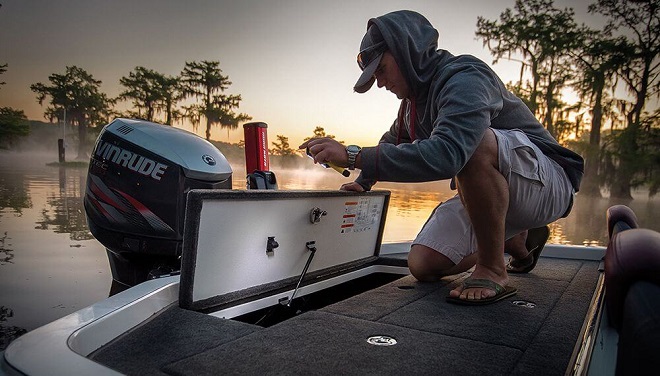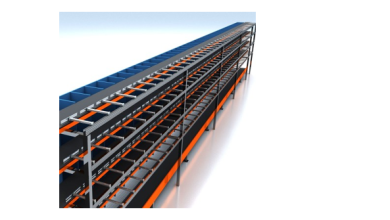Maintenance Tips to Extend the Life of Your Boat’s Battery

For Selma, TX, residents, the allure of serene waters and leisurely boating adventures is irresistible. Whether you’re cruising along Cibolo Creek or exploring the beauty of Lake Dunlap, owning a boat is a source of pride and joy. But to ensure that your aquatic escapades remain hassle-free, it’s crucial to pay special attention to one of your boat’s crucial components: the battery. This article will provide you with some valuable tips on how to keep your boat batteries Selma TX in top shape, ensuring that your boating experiences are always powered by reliable and well-maintained batteries.
Choose the Right Battery
Before diving into maintenance tips, it’s essential to start with the right battery. Make sure you select a battery that is suitable for your boat’s size and power requirements. Consult your boat’s manual or seek advice from a professional to ensure you choose the right battery type and size.
Regularly Inspect and Clean Your Battery
Inspecting and cleaning your boat’s battery is a fundamental step in maintenance. Start by checking the battery terminals for any signs of corrosion or loose connections. Corrosion can inhibit the battery’s performance and shorten its lifespan. To clean the terminals, use a mixture of baking soda and water and a wire brush to scrub away any corrosion gently. Rinse with clean water and dry thoroughly.
Maintain Proper Fluid Levels
Many boat batteries, particularly lead-acid batteries, require regular checks and maintenance of fluid levels. Make sure to keep the water level in each cell at the recommended level. Use distilled water to top up the cells when necessary. Maintaining proper fluid levels helps the battery function optimally and prevents damage due to low fluid levels.
Charge Your Battery Correctly
Proper charging is crucial to the longevity of your boat’s battery. Avoid overcharging, which can lead to damage, and undercharging, which can cause the battery to sulfate. Invest in a quality marine battery charger and follow the manufacturer’s instructions for charging your specific battery type. It’s also a good idea to invest in a smart charger that can maintain a trickle charge to keep the battery in good condition during storage.
Disconnect the Battery When Not in Use
If you plan to store your boat for an extended period, disconnect the battery to prevent parasitic drains. Even when your boat is not in use, various systems and devices may draw power from the battery. Disconnecting the battery eliminates this risk and ensures your battery remains fully charged when you’re ready to use your boat again.
Store Your Battery Properly
If you remove the battery for storage during the off-season, make sure to store it properly. Keep it in a cool, dry place away from direct sunlight and extreme temperatures. A battery storage box or a wooden pallet can help protect it from moisture and provide a stable surface.
Perform Regular Load Testing
Load testing your boat’s battery is an effective way to assess its health and performance. A load tester can determine if the battery can deliver the required power when starting the engine and running onboard electronics. If your battery fails the load test, it’s a sign that it may need to be replaced.
Use a Battery Maintainer
A battery maintainer, also known as a battery tender or float charger, is a device that keeps your battery at an optimal charge level during storage. It’s an excellent investment to ensure your battery remains in good condition when your boat is not in use for an extended period. Connect the maintainer to your battery according to the manufacturer’s instructions, and it will automatically monitor and maintain the charge level.
Avoid Deep Discharges
Deep discharges can be detrimental to your boat’s battery. Try to avoid letting your battery discharge below 50% of its capacity. Deep discharges can lead to sulfation, which can significantly reduce the battery’s lifespan. If you plan to use your boat for extended periods, consider adding a secondary battery or a backup power source to prevent deep discharges.
Check and Tighten Battery Hold-Downs
Boating can be a rough and bumpy experience, especially in choppy waters. To prevent your battery from shifting or becoming dislodged during rough rides, check and tighten the battery hold-downs regularly. A secure battery is less likely to suffer damage or cause electrical problems.
Seek Professional Help When Needed
If you’re not confident in your ability to maintain your boat’s battery, don’t hesitate to seek professional help. A qualified marine technician can perform battery maintenance and diagnose any issues you may be experiencing.
The Bottom Line
In conclusion, taking care of batteries in Selma TX is essential to ensure a long and trouble-free boating experience. By following these maintenance tips, you can extend the life of your boat’s battery, avoid unexpected breakdowns, and enjoy more time on the water. Remember that proper battery maintenance not only saves you money but also contributes to the overall safety and reliability of your boat. So, don’t neglect your battery—give it the care it deserves, and it will reward you with years of reliable service.


![[PII_EMAIL_1BC24F13E6217FE6E335], [PII_EMAIL_4BD3F6CBBB12EF19DAEA], [PII_EMAIL_57585D6CF4028389F7C9], [PII_EMAIL_5AEFD30A47E124BA7AEA], [PII_EMAIL_6005ED41DBB868B2DE7F],](https://dailynewsarea.com/wp-content/uploads/2023/02/pii-email-error-F60e9c48c91b3fdf8-Outlook-390x220.jpg)


